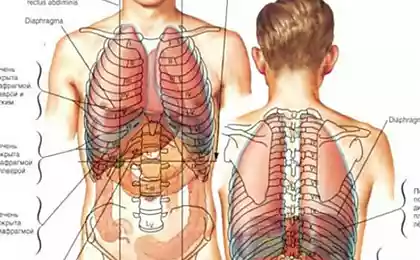240
Why “I must” causes anxiety and how to fix it

The phrase “I must” seems innocent and even useful at first glance. It serves as a reminder of our responsibilities and goals. However, when this phrase becomes a persistent obsessive thinker, it can lead to feelings of anxiety, stress, and even burnout. In this article, we’ll look at why “I must” causes anxiety and how to change your mindset to achieve inner harmony and success.
Freeing yourself from the obsessive “I must” is the first step to freedom and true motivation. ?
1. Psychological pressure "I must"
The phrase “I must” imposes on us external and internal obligations, which can create a sense of pressure and responsibility. This leads us to judge ourselves solely by fulfilling these responsibilities, ignoring our desires and needs.
- Internal expectations: Often, “I must” comes from our own high standards and commitment to excellence.
- External expectations: Social norms and pressure from others can also encourage the use of this phrase.
- Comparison with others: The desire to live up to expectations can lead to constant comparison of oneself with others.
2. Impact on Mental Health
Continuous use of “I must” can negatively affect mental health. This can lead to chronic stress, anxiety and depression as we feel cornered and unable to meet high expectations.
- Chronic stress: A constant sense of commitment creates lasting tension.
- Alarm: Worrying that we are not doing our job.
- Depression: Feeling powerless and worthless can lead to depressive states.
3. Limitation of Personal Freedom
“I must” limits our ability to make decisions based on our own desires and needs. We become hostages of commitment by losing control of our lives.
- Lack of flexibility: Inability to adapt to changing circumstances.
- Loss of creativity: Task-only focus reduces creativity and innovative thinking.
- Loss of joy: Focusing on responsibilities takes away the pleasure of life.
4. How to Change Your Mind and Defeat Anxiety
Changing attitudes toward “I must” is a key step to reducing anxiety and improving quality of life. Here are some strategies to help you break free from this obsessive thinking:
1. Replace "I must" with "I want"
Reframe your commitments by replacing “I must” with “I want.” This will help you focus on your desires and motivations rather than external commitments.
2. Practice Mindfulness
Mindfulness helps to be in the present moment and accept your feelings without judgment. Meditation and breathing exercises can help you better understand your emotions and reduce stress levels.
3. Set realistic goals
Set achievable goals that match your abilities and resources. This will help to avoid feelings of failure and increase self-confidence.
4. Develop Self-Compassion
Treat yourself with kindness and understanding. Recognize that no one is perfect and mistakes are part of the growth process.
5. Limit the influence of external expectations
Consciously reduce the impact of social norms and expectations on your decisions. Focus on what is important to you.
5. Examples of Successful Change
Many successful people have been able to change their attitude toward “I must” and have found inner harmony and fulfillment. For example, well-known entrepreneurs and creative people often emphasize the importance of following their desires and intuition instead of external expectations.
- Oprah Winfrey: A well-known TV presenter and entrepreneur who often talks about the importance of listening to your heart and following your desires.
- Elon Musk: The CEO of Tesla and SpaceX, who emphasizes the importance of passion and personal motivation in achieving great goals.
- Marie Kondo: A Japanese space expert who encourages you to focus on what brings joy.
6. Conclusion: The Path to Freedom and Harmony
Getting rid of the obsessive “I must” is a process that requires awareness, practice, and patience. However, by changing your thinking, you can significantly reduce your anxiety levels, improve your quality of life, and build more harmonious relationships with yourself and others. Remember that your life belongs to you and only you can decide how to live it.
Start today: Realize your inner responsibilities, rethink your goals and priorities, and start moving toward a life of joy and fulfillment. Freedom of thought is the key to your happiness and success.
Don’t Give Up: 10 Powerful Ways to Stay Motivation During Times of Difficulty and Stress
14 signs that you are a shrewd person























